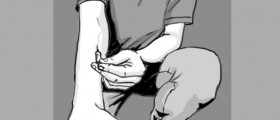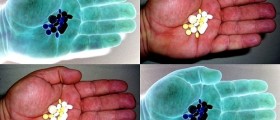
Methadone is a member of an opiate group of medications. It binds the opiate receptors in the central nervous system and gastrointestinal track and has different effects. One of them is cough suppression. The effects of methadone are actually the same as the effects of heroin and morphine, other members of opiate medications. At monitored doses it is used with people addicted to morphine and heroin. The drug can also be prescribed to people suffering from severe and intensive chronic pain. Methadone is most commonly administered in a solution form and it is available in a form of tablet. Prior to taking, the tablet is first mixed with water.
Methadone Withdrawal Symptoms
As mentioned before methadone is used with people addicted to heroin and morphine. The transfer to methadone is necessary because withdrawal symptoms associated with methadone are better tolerated comparing to withdrawal symptoms caused by heroin or morphine. Still, even methadone withdrawal symptoms can be quite intensive and cause difficulties overcoming the withdrawal period and complete eradication of addiction. Withdrawal symptoms of methadone are quite intensive and can be severe if the drug is administered in high and uncontrolled doses.
The most common physical symptoms of methadone withdrawal are dizziness, excessive tearing, runny nose, sneezing and yawning. Gastrointestinal problems include nausea, diarrhea and/or constipation. Furthermore, the individual may experience sweaty fever with chills and tremor. In majority of cases heart rate as well as blood pressure increase. Additional symptoms include increased sensitivity or even pain in joints and muscles. There may be suppression of the adrenal gland function and some patients suffer from insomnia.
Psychological symptoms of methadone withdrawal usually include visual and auditory hallucinations, hyperactivity and delusions. Certain number of people develop paranoia, suicidal thoughts, become anxious, agitated or depressed.
Methadone withdrawal symptoms in babies occur in case the mother stops taking the drug after she has been using methadone during her pregnancy or while breastfeeding the baby. In such case the withdrawal symptoms also affect the baby and the newborn usually develops hyperbilirubinemia with accompanying jaundice, hyaline membrane disease and thrombocytosis. Methadone withdrawal in babies can cause lethal outcome.
Duration of Methadone Withdrawal Symptoms
The degree of dependency actually determines the duration of methadone withdrawal symptoms. In people who have been taking methadone in controlled doses withdrawal symptoms usually do not last longer than a few weeks. On the other hand, if an individual has been using methadone in high doses the withdrawal symptoms may linger for months.


_f_280x120.jpg)













Your thoughts on this
Loading...